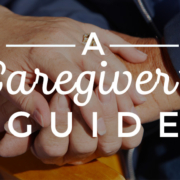5 Tips on Caring For An Individual With a Brain Injury
When a loved one or family member suffers a brain injury, you may take the role of caregiver – a role that can be exceptionally challenging. At the very least, it’s a stressful time that can call on all of your mental and physical resources and abilities.
The fact is, few injuries are as devastating as a severe brain injury. The person who suffers one may behave, think, and see the world differently than he or she did prior. Providing support and being their caregiver, is often a delicate, demanding task. Here are some suggestions to keep in mind.
1. Structure is Vital
Maintaining a structured environment is essential for providing care to someone who’s suffered a brain injury. The structure will minimize potential issues by providing the individual a consistent, dependable way of life. It provides you (the caregiver) with a disciplined approach that accounts for most variables and inevitable challenges that may arise. It also means maintaining a schedule that provides as much activity as the patient can handle, without becoming overly fatigued.
2. Communication
Knowing what not to say to a person with a brain injury is just as important as knowing what to say. Keep these tips in mind:
- Don’t tell them they’re not trying hard enough – Apathy, not laziness, is common after a brain injury. Recognize apathy and take steps to treat it.
- Understand the invisible signs – A person with a brain injury often suffers from hidden signs such as fatigue, depression, anxiety, etc., and saying that they “look fine” to you is belittling.
- Don’t complain about having to repeat yourself – Almost everyone who suffers a brain injury will experience some memory problems. Becoming frustrated that you have to repeat yourself only emphasizes the issue.
- Remain patient when they’re not – Irritability is a common sign of a brain injury and it can come and go without reason. If you are always pointing out their grumpiness, it doesn’t help the situation.
- Don’t remind them how much you do for them – The person may already know how much you do for them – and feels some guilt about it – or may not understand at all (depending on the severity of their injury).
3. Educate Yourself
Become involved in their recovery during the rehabilitation process. Doing so enables you to have a clear understanding of struggles the person will face, and strategies that you can implement at home to lessen the impact of these problems.
4. Be Aware of Changes in Behavior
Check with your physician whenever you notice any behavioral changes in your loved one, or person you are caring for. Seizures can develop after a brain injury and occur several months, or even years after the injury occurred. Your physician may recommend anti-seizure medications.
5. Take Time for Yourself
It can be easy to ignore personal fatigue and frustration while you’re caring for someone with a brain injury. Taking time for yourself, calling on the help of others, joining a caregiver support group – all are ways that can assist you from becoming physically and emotionally exhausted. Above all, be kind to yourself and give yourself credit for all that you do.











Leave a Reply
Want to join the discussion?Feel free to contribute!